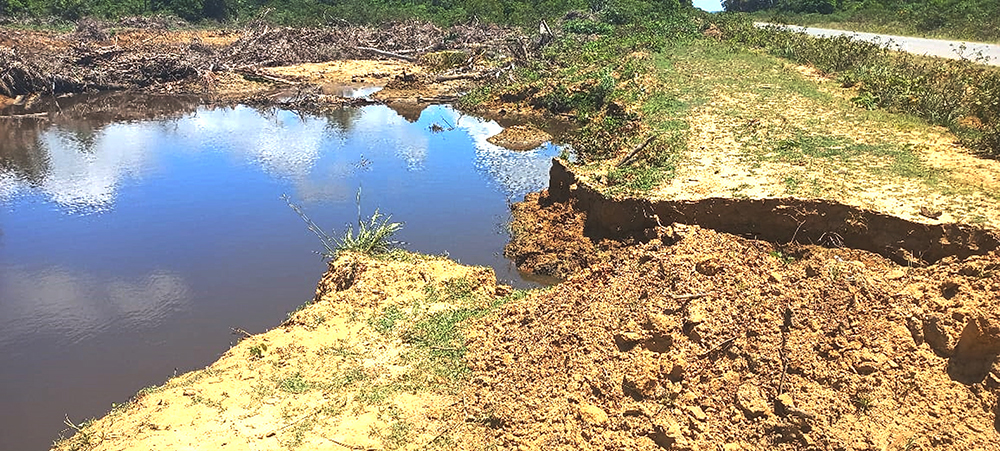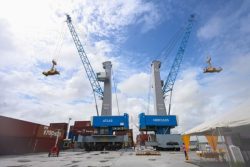Vice President Bharrat Jagdeo yesterday stated that due to the demand for the exportation and shipment of sand to several Caribbean states from Guyana, the government has decided to open a mammoth sand pit to sustain its supply chain.
He made this disclosure to reporters during a press briefing on government-related matters at the Arthur Chung Conference Centre at Liliendaal, Greater Georgetown.
Jagdeo noted that while the price of sand exported has risen due to the rapid expansion of the construction industry, the prices locally are competitive as compared to prices regionally.
Questions have already been raised locally about the magnitude of sand extraction to feed the construction boom and whether any studies are being done about sustainability. The removal of sand from some areas has also threatened the integrity of nearby infrastructure.
This newspaper a few months ago reported that the cost of sand has nearly doubled from last year and the blame for the increase was being ‘traded’ between pit owners and truck drivers, even as the ordinary citizen laments the pressures felt when purchasing the commodity for construction and other works.
At this time last year, the cost for a single-axle truckload of sand delivered around Georgetown and its environs was $13,000 and for a double-axle truck, $18,000. For the same truck sizes, the current cost of a load of sand now averages between $25,000 and $30,000 and $30,000 and $45,000 respectively.
A city resident expressed regret that she did not purchase the sand she needed since last year because of the exponential increase. She said that back then she was quoted $18,000 for a truck load of sand by a family-friend who runs a trucking service and who said it was a deal at the time. The same family-friend now says that the price has moved to $45,000 for the twin steering truckload. A Better Hope resident says she pays $30,000 for a double-axle truckload but suggests that that cost is possible because of high demand [for two years there has been continuous construction in the street where she lives] and also because all the residents use a single supplier.
Minister of Public Works, Juan Edghill, when asked by Stabroek News for a comment on the increasingly high cost of sand said that while he has not received complaints from citizens, he will check into the price. He said that the last known price for a twin steering truck was $30,000 and if any truck operator was charging $45,000 [per truck load], it meant they were exploiting citizens. “That [$45,000] is exploitation; $30,000 is market price,” he stressed.
Jagdeo however acknowledged yesterday that exorbitant shipment costs of commodities such as sand, sugar, and rice are not only felt in Guyana, but it is a subject that is up for discussion before Caricom leaders as it has impacted the conduct of trade missions regionally.
Deputy Premier of the British Virgin Islands (BVI), Lorna Smith, on Tuesday at a press briefing on the recent BVI-Guyana Trade Mission, was asked about measures taken to address the astronomical prices for the shipment of commodities from Guyana to the British Virgin Islands as many investors deemed it expensive.
Smith responded by suggesting that this should be another area of focus at the cabinet level.
“One merchant here told me he imports sand from Guyana, and the cost of that sand you know is a million dollars! That is no exaggeration, however, it is the shipping because when you add the shipping to that, it is more than the actual cost of the sand.”
“Similarly, there is one person here who imports the Demerara Sugar and he too said that it is very expensive. However, it is something we must address because both those commodities together with other commodities from Guyana are very important to the economy of this country.” she noted.
Junior Minister of Agriculture and Fisheries, Dr Carl Dawson, who was also present at the press briefing said that the exorbitant cost of shipping has affected the price for commodities imported from Guyana for resale in the BVI such as sugar and sand.









